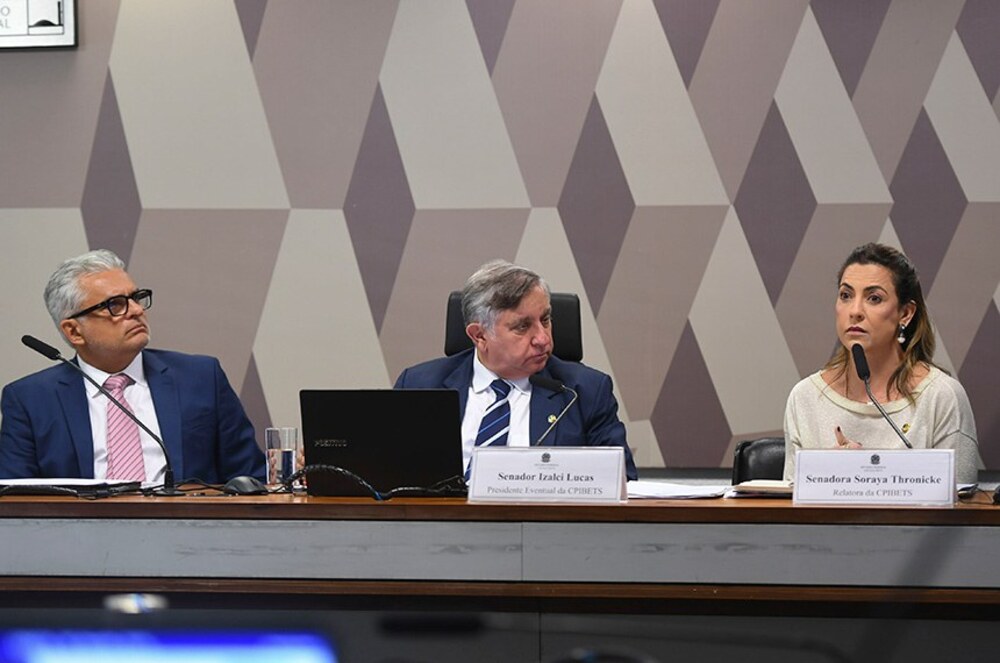Conar Defends Joint Action with Government to Regulate Betting Ads

Brazil – May 9, 2025 – www.zonadeazar.com In a meeting of the Parliamentary Inquiry Commission on Betting (CPI das Bets) this Thursday (May 8), Sérgio Pompilio, President of the National Council for Advertising Self-Regulation (Conar), defended the joint efforts of the public and private sectors in regulating illegal betting advertisements. He highlighted that advertising through digital influencers on social media — one of the key focuses of the CPI investigation — is Conar’s greatest challenge, since its oversight has traditionally targeted companies.
Pompilio stated that Conar is working with the Federal Government’s Prizes and Betting Secretariat (SPA) to adapt to the digital age and the legalized betting market.
“A ‘system of consequences’ is being developed, in which problematic cases identified by Conar will be sent to the SPA, which has enforcement authority, so that further actions can be taken. Very likely, consequences will go beyond fines and include suspension of betting company licenses,” he said.
When questioned by CPI rapporteur Senator Soraya Thronicke (Podemos-MS), Pompilio admitted that a fully aligned system with the SPA to curb influencer abuses is still not in place. Current advertising rules are based on Law 14.790 (2023) and Ministry of Finance Ordinance 1.231 (July 2024), which prohibit false gain promises and ads targeting minors.
Conar is a nonprofit, private self-regulatory body — where private sector actors voluntarily comply with its rules and decisions. Pompilio clarified that Conar rules on ad content (which can be maintained, modified, or removed), not individuals or companies through fines.
The testimony followed a request from Senator Izalci Lucas (PL-DF), who chaired the session (REQ 116/2024 – CPI das Bets). According to Izalci, experts believe Conar’s efforts have been “ineffective in curbing abusive betting advertising,” despite a new 2023 annex to the Conar code focused on the betting industry.
Izalci also announced that the testimony of digital influencer Rico Melquiades, scheduled for the same meeting, was postponed.
Advertising Ban Debate
Senators Eduardo Girão (Novo-CE) and Damares Alves (Republicanos-DF) voiced opposition to all betting ads. Damares, rapporteur of Bill 3.563/2024, submitted a version that bans betting advertising entirely.
“It was a very harsh vote. It’s upsetting that today a child must promote a betting brand just to buy a team jersey. What a shame — watching football and seeing ‘bets, bets, bets’ everywhere!”
Pompilio countered that regulated ads help identify government-approved companies and reduce illegal market exposure.
“A total ban could cause more harm than good, as it creates a vacuum easily filled by illegal actors. Around 80% of complaints we receive — whether from consumers or betting companies — are about unauthorized bets. That’s the real problem.”
The betting sector has been gradually opening since Law 13.756 (2018), but full regulation came into effect only in January 2025, following a transitional phase during 2024.
Role of Influencers
Pompilio emphasized the critical role of digital influencers in the regulation challenges. He noted that influencer advertising is already under Conar’s scope but acknowledged the need to expand the regulatory ecosystem to make enforcement more effective.
As a solution, Conar is pursuing “ethical training,” certification programs, and awareness campaigns to help influencers understand legal obligations and penalties.
“Once this framework is solid, betting companies will know which influencers have undergone training and understand the rules. Those who don’t comply simply won’t be hired. If an influencer promotes unauthorized bets, the immediate consequence is loss of future contracts with reputable brands.”
Conar also uses an AI-powered monitoring platform to oversee all online advertising. While the SPA’s consequence system is still not operational, Conar’s enforcement remains limited to companies that voluntarily comply — including social media platforms.
“We can ask advertisers to remove illegal ads. If they don’t, we ask the influencer. If they refuse, then the platform must remove it. Today, cases where Google or Meta fail to comply are rare. But with illegal betting operators abroad, like in Asia, we can’t enforce anything — yet their ads still reach teenagers.”
The CPI has already approved 15 motions to summon influencers or request their financial records.
CPI Extension and Controversies
Senator Soraya Thronicke expressed frustration over the short 45-day extension granted for the CPI (ending in June), instead of the 130 days she had requested. She criticized ongoing delays, absent senators, and unfulfilled testimonies.
Soraya supported Senator Girão’s request for the CPI to hear from lobbyist, businessman, and lawyer Silvio Assis. Girão referenced a December 2024 news article accusing Assis of “extorting betting companies by leveraging CPI pressure.”
“The scheme allegedly involved lawmakers filing testimony requests, followed by Assis offering to ‘solve’ the issue for large payments. Veja magazine published serious accusations,” said Girão.
Soraya, cited in the article as being “linked to Assis,” denied any wrongdoing and called for a face-to-face hearing with Assis and Senator Ciro Nogueira (PP-PI), who was quoted as exposing the scheme.
“I want a confrontation between me, Ciro, and Silvio. Silvio is asking to testify — why won’t they let him? He also has something to reveal,” she stated.
Source: Agência Senado (Reproduction authorized with citation)
Editor: @_fonta — www.zonadeazar.com